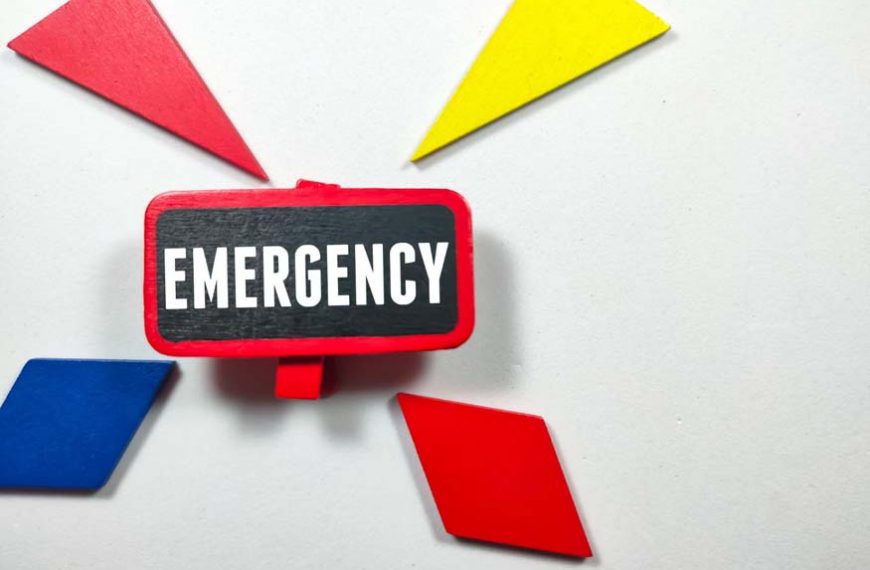Teaching Children Emergency Preparedness
As parents it is our responsibility to equip our children with skills required for them to function effectively in society, the skills we teach them as children will help them as adults. It is natural for us to focus on the obvious speaking and communication skills, cognitive skills, fine and gross motor skills, social and emotional skills.
As our child gets older we also ensure they learn additional skills like how to play a sport, a musical instrument, develop their creativity and drawing skills, maybe even their maths skills, all of which are essential. At home we ensure that they learn how to eat properly and independently, learn how to brush their teeth and dress themselves, we provide them with the necessary skills to be less dependent on us. While learning these skills is necessary, we seldom take the trouble to teach our children how to handle emergency situations.
Emergency preparedness is extremely necessary so that children know how to handle themselves as and when an emergency situation arises. You can start as early as preschool to begin preparing your child for some common emergency situations, making sure you have regular practice sessions so that your child can internalise and remember what needs to be done should an actual situation arise.
Emergency situations tend to be stressful situations and children are quick to pick on the fact that something is not right. During these situations it is difficult to stay calm while handling a crying or screaming child, while dealing with other family members and the situation itself. But, if you have taught your child some coping strategies then they are more mentally prepared when faced with a stressful situation.
An emergency refers to any unexpected, urgent and maybe dangerous situation that requires our immediate attention and may pose some danger to our life, health or surroundings and emergency preparedness is knowing the behaviour that is expected from you as well as calmly and effectively handling such situations without panic and chaos.
Some of the common regular emergency situations that you child might encounter are-
- They come home from school or play and no one is at home- There may occur instances when you pop out for a quick errand before your child comes home only to be stuck longer than expected. Tell your child to wait outside the house for some time and you’ll be back soon. If they are too tired or scared they can go to X’s or Y’s house. (a neighbour you trust). That way you know where your child is when you return.
- Hurting themselves and bleeding or a sibling has hurt themselves and is bleeding- When children play they are bound to fall down and hurt themselves and sometimes their wounds can start to bleed. We need to teach our children that this is normal, they need to stay calm and take deep breaths instead of crying loudly. When they get hurt or their friend gets hurt then they need to call a known adult for help. If no one is around then they need to first wash the wound with clean water and place a clean cloth over it and hold it in place till the bleeding stops or an adult comes to help them out.
- Being alone in a room and facing a power failure- There may be times when your child is playing in a different room late in the evening and the lights go off. Being in complete darkness can be scary for a young child. Tell your child instead of crying and running around in the dark which is dangerous, they need to sit in one place and call out to their parents and wait for instructions or find a torch or emergency light if they know where it is and turn it on. You can keep an emergency light or a battery operated torch in the child’s room and teach them how to use it in case of a power failure.
- Getting lost or separated from parents- This is perhaps the most frightening scenario for parents and children alike and situations like this can happen to even the most meticulous parent. The best thing you can do is to help your child memorise your mobile phone number. When visiting a mall, draw your child’s attention to the security guards, or people in uniform all over the place, also show them where the help desk is located and the people they can go to for help. Teaching your child to say their name clearly and also your name would be beneficial. Alternatively to be on the safe side for really small children you could put a slip of paper with necessary details in their pockets or let them wear an ID card or a bracelet with these details on it
- Watching something catch fire- Watching something burning may have a hypnotic effect on a child and they could be drawn towards the flames. We need to teach our child that fire is dangerous, if they happen to see something catch fire they need to stay far away from it and move in the direction opposite to the fire and alert any of the adults that are around.
- A parent or grandparent at home is suddenly not feeling well- Grandparents being at home and caring for our children even for short periods of time is not uncommon in our homes. With age comes health issues as well and there may occur a chance when an aged member of our family feels unwell. If our child observes this they may feel helpless, teach them to alert any other adult in the house or maybe a neighbour if there is no other adult at home.
The examples mentioned above are some basic scenarios that our children might experience at some point. When children are scared they resort to crying, whining and may even wet the bed, older children may display other forms of distress like anxiety and irrational fear. When children are equipped with some basic self-help skills, they don’t feel helpless, rather they become self-reliant.
Skills like these don’t come naturally to our children hence we need to find opportunities to train our children as and when possible, take some time during the weekends and role play, you can even have a pop quiz session and ask your child what would they do – ‘if they got hurt and are bleeding’, when at the mall, ask your child to point out to the people they can go to and ask for help. With regular reminders and practise your child will soon remember what is expected of them.
EuroKids, a well-recognised and trusted name in childcare puts a lot of thought and effort in making children confident and self-reliant. They are given numerous opportunities to explore and do things by themselves in a safe and secure environment. Children are also taught to say their names as well as the names of their family members to equip them should the need arise. Click here to find a centre nearest to you and enrol your child today!!
















